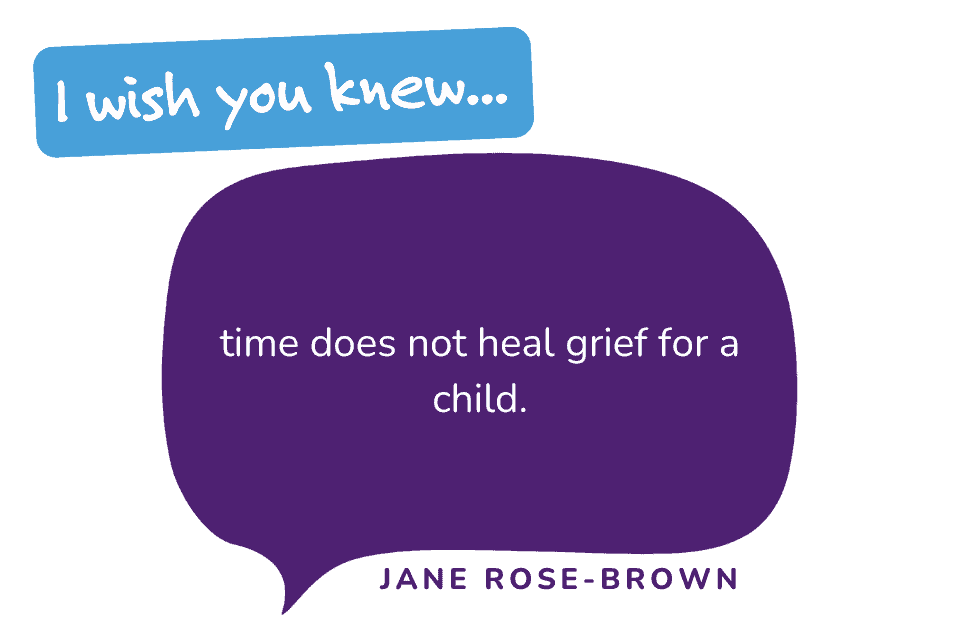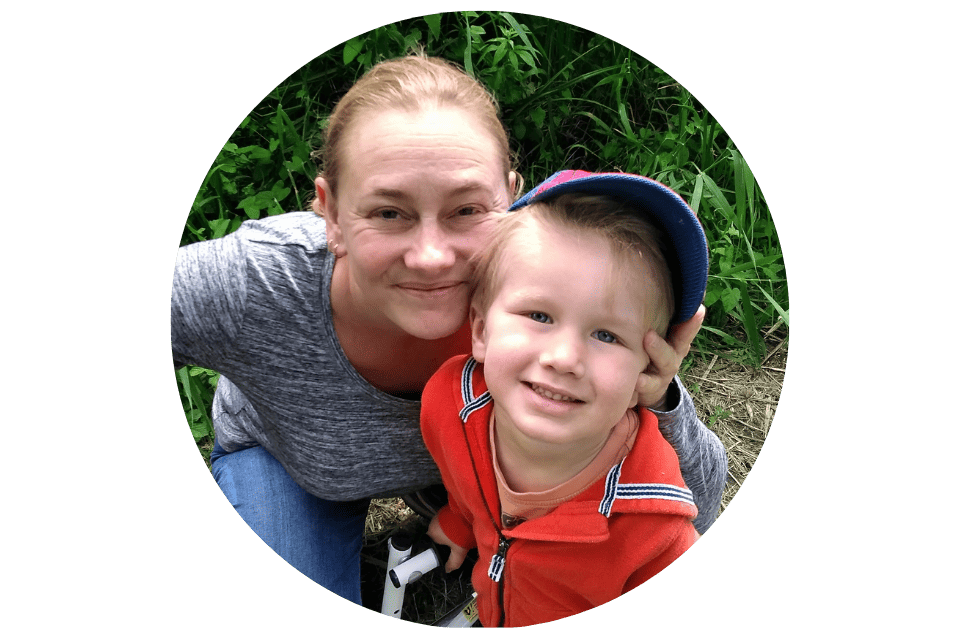Jane's story

I wish you knew how hurtful and damaging people’s misplaced words can be, when dealing with grief. My son, Amali, died when he was four and a half, in September 2020. He had a severe neurological disorder called Leigh syndrome and received incredible end-of-life care at The Nook.
I miss him every single minute and that will never change. People say time’s a great healer but I disagree. I might be able to function now and, because I look and sound normal, everyone thinks I’m OK. However, that just masks my horrendous, gut-wrenching pain and nothing can take that away.
People can help with practical things but I wish you knew how upsetting their careless words can be, especially when they start a sentence with “at least” – as in “at least he’s not suffering anymore” or “at least you have two other children”. I know they don’t mean harm, that their words come from a kind place and they’re trying to be helpful and supportive.

However, as a nation, we’re awful at talking about death and people instinctively want to fix things, rather than simply offering a friendly ear. They don’t know how to listen and, in that moment, it feels like they’re arguing with me and dismissing my feelings.
The other thing that frustrates me is when people refer to the fact they've lost a grandparent, parent or even partner, as though it’s the same thing. It isn’t. It’s natural to lose your grandparents and parents, but you’re not supposed to have to bury your child, especially when he’s only four. They insist they know how I feel, when they actually have no idea, and I find that distressing. People want to be on your side, which is commendable, but often they’re achieving the opposite, while also dismissing my feelings.
I’ve heard some crazy comments in the last three years and I even started writing them down at one point. People want to fill a silence because they feel uncomfortable. Two good friends have disappeared from my life because they don’t know what to say. However, in reality, all I want is for someone to listen. Ironically, some of the easier conversations I have are random ones with strangers, like in a shop or on the bus. They don’t know me or my background yet surprise me with a line that offers some comfort, rather than trotting out the usual glib platitudes.
Aside from listening, the best thing people can do is offer practical support and it’s amazing how many meals were left on our doorstep after Amali died. It was so kind. On the flip side, I always found it unhelpful when people said “ring me if you need anything” because it’s a throwaway line - you’re so broken at that moment in time, you can’t identify what needs doing.
With all this in mind, one of the things that helps me massively is the bereavement support I receive at The Nook. My counsellor listens to me, offering helpful, reassuring words, and it’s one place where I’m able to have a rant without someone trying to quieten me down or contradict me. More generally, I can’t imagine the last few years without EACH. The support we received as a family was second to none. In addition to Amali, myself and my partner, Jake, had an eight-month-old baby, Billy, and a 13-year-old son, Mpaji. All of us were looked after so well, from being fed and watered to having our clothes washed, and I can’t stress enough how fantastic everyone was. Even when we left the hospice for the last time, we were given a home-cooked lasagne to have for dinner.
That support meant Jake and I could spend Amali’s last few days in bed with him, eating raspberries, watching telly and reminding him of all the great things we’d done together. His grandparents and close family were also able to be there at the hospice. It meant he died peacefully, without being scared and with both of us there by his side. It could have been so much worse and even though I sometimes feel the unluckiest person in the world, I feel fortunate to have been there.
Jane Rose-Brown, Amali’s mum
Norwich